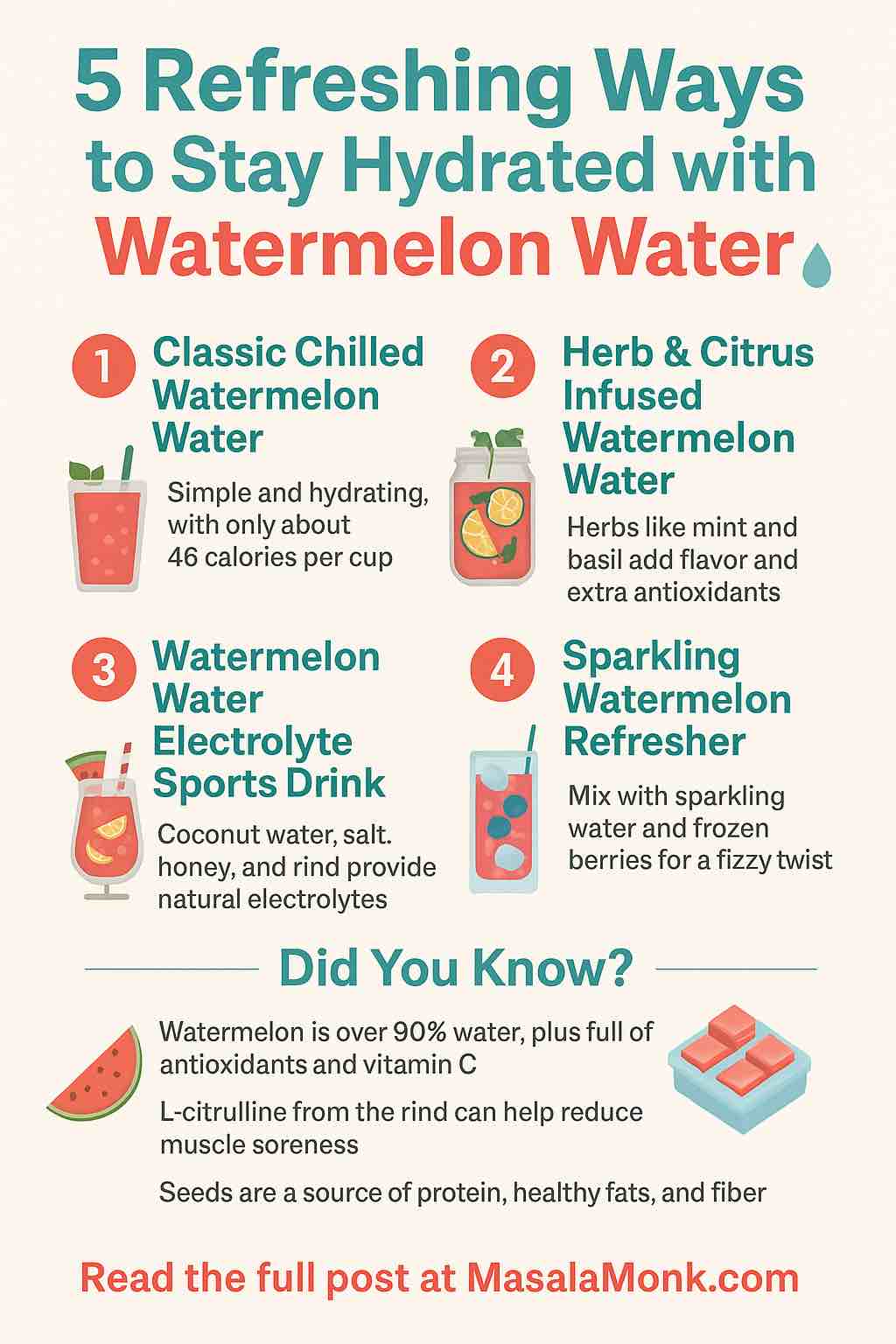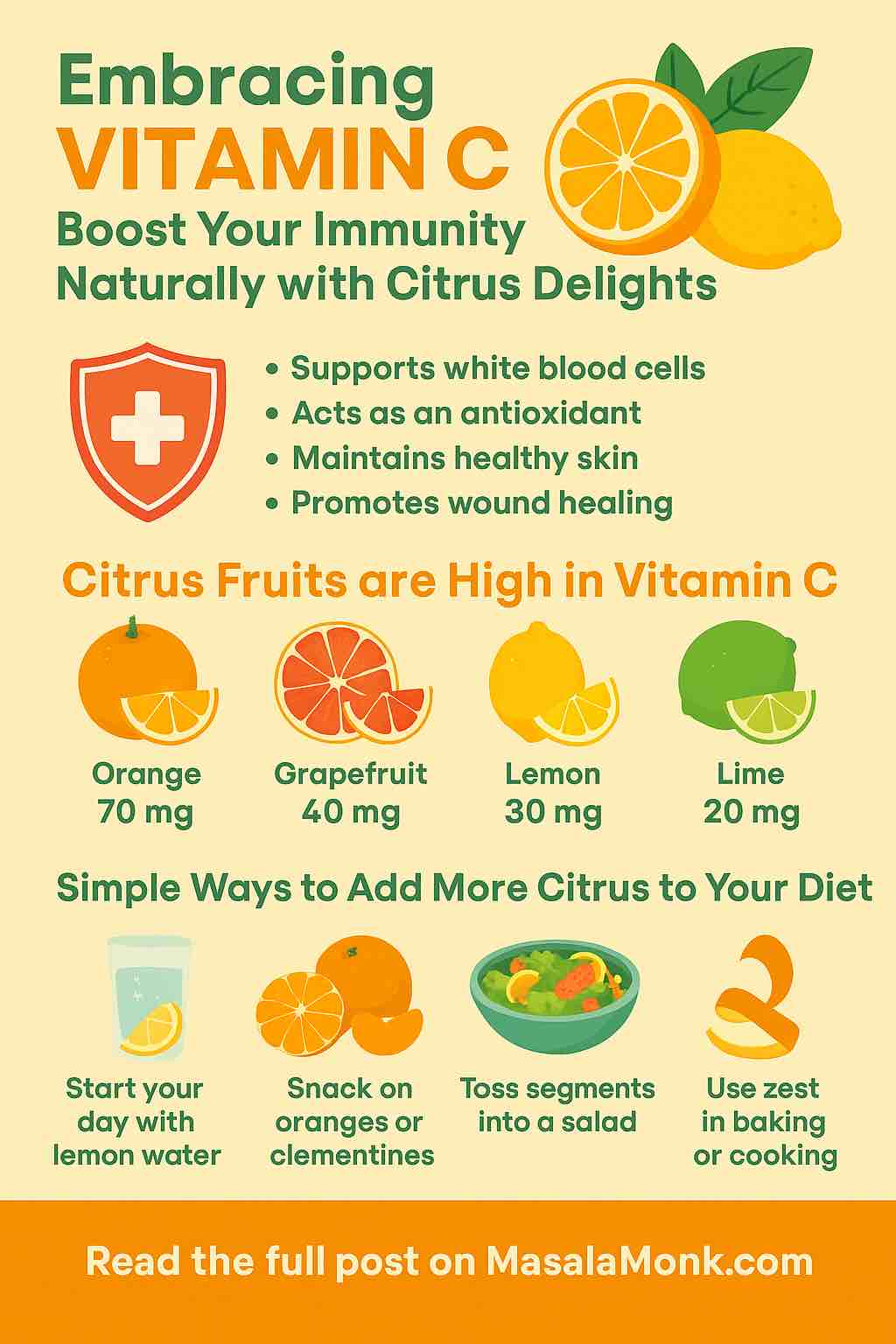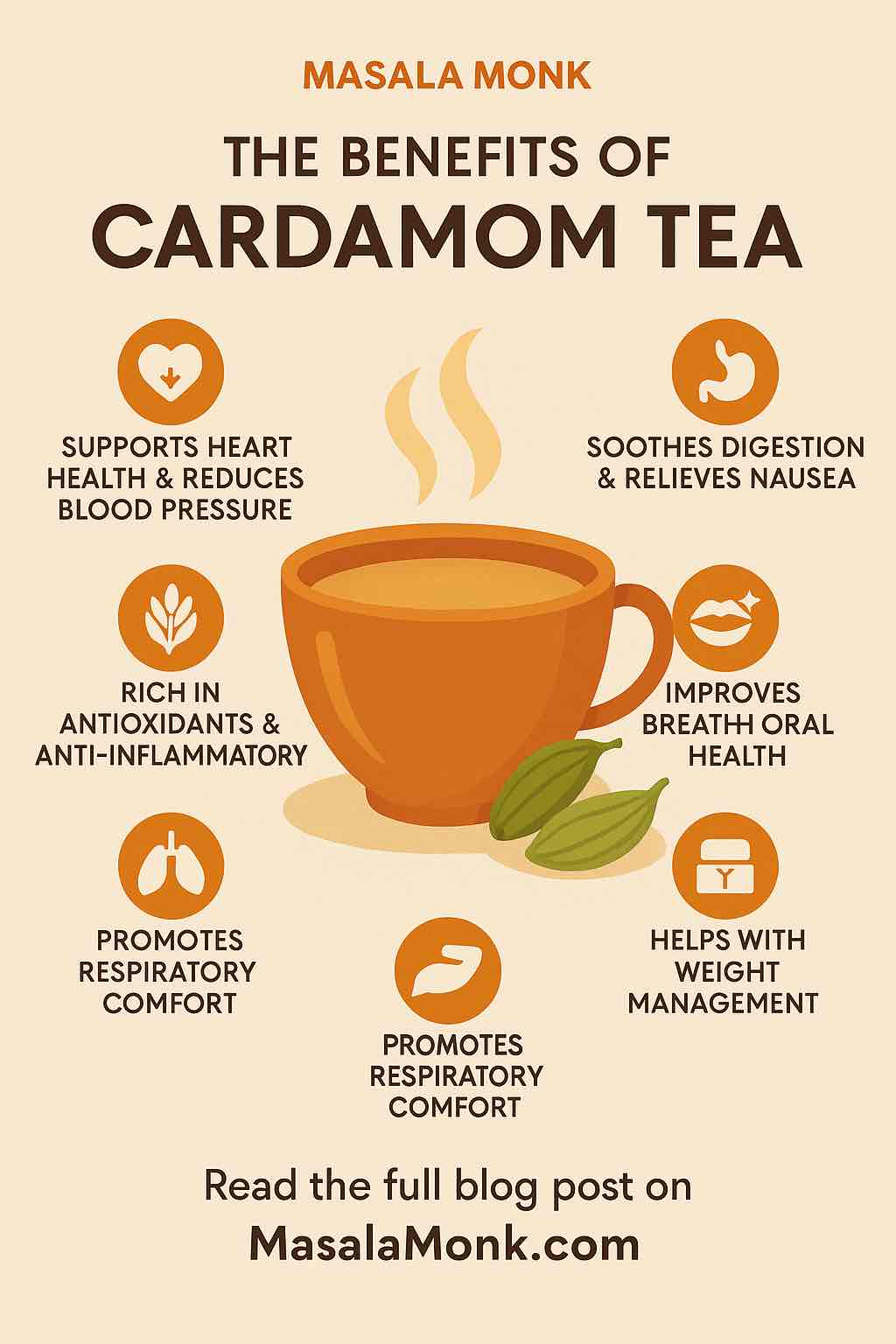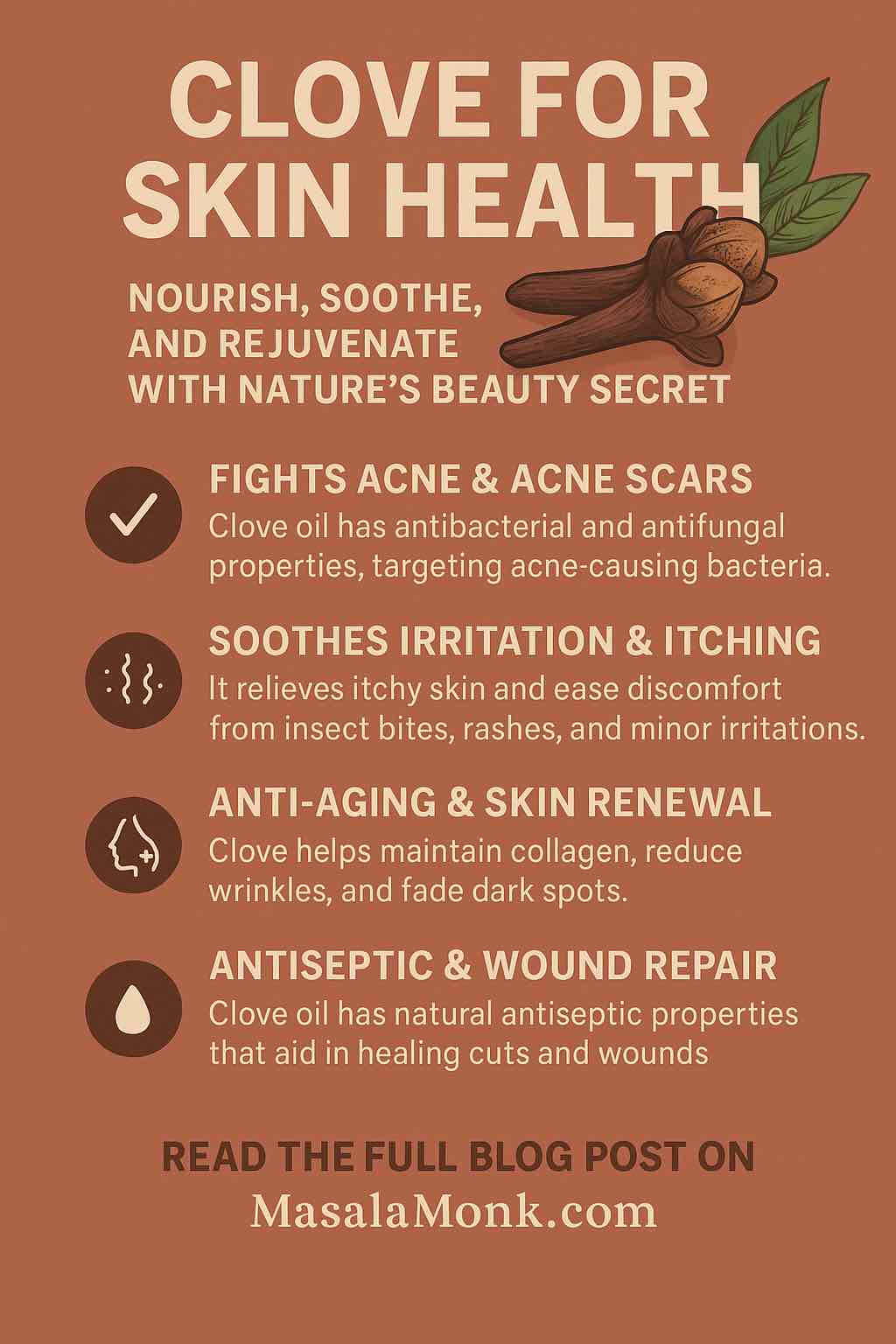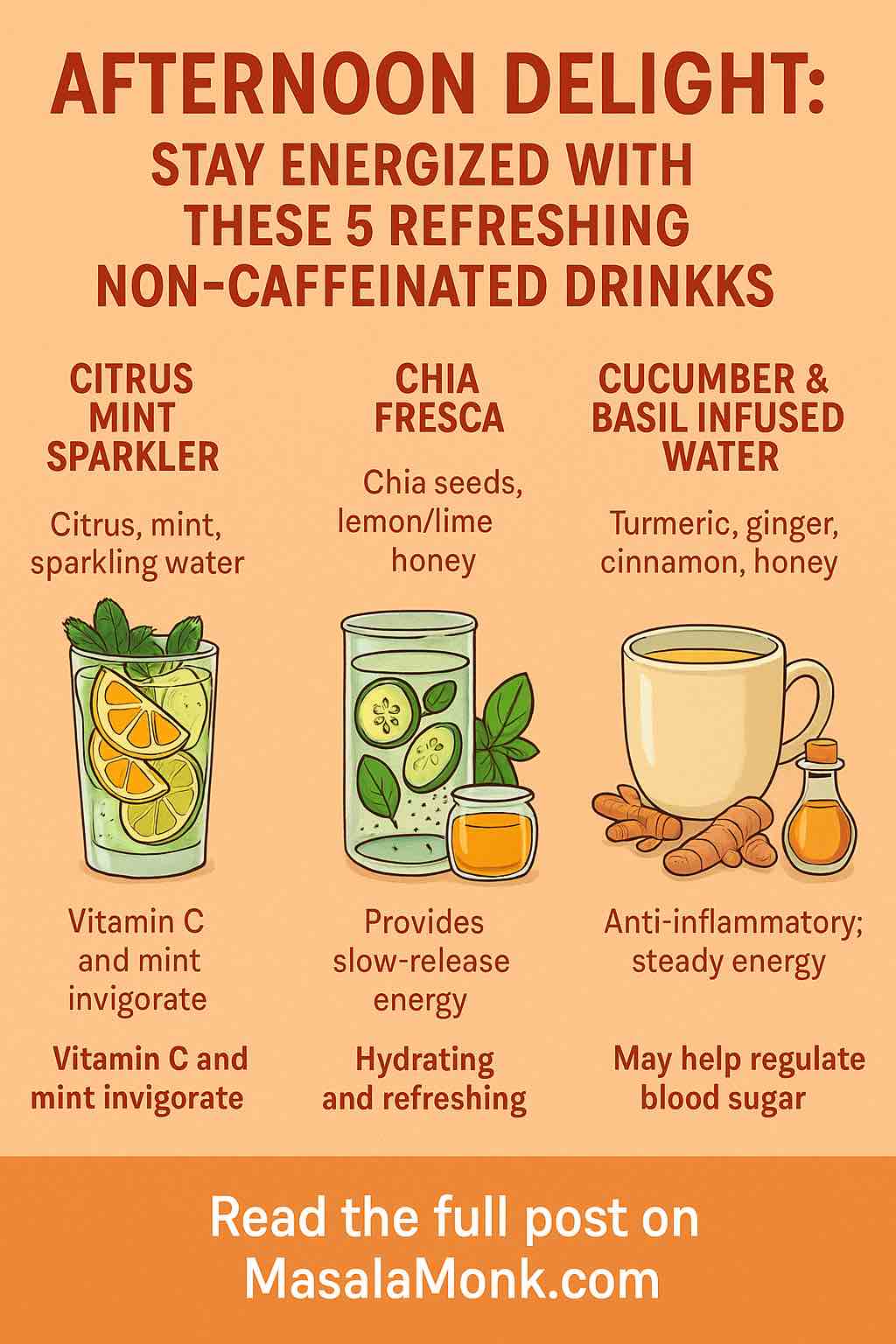
It’s 2:30 PM. Lunch has settled, your focus is fading, and the classic “afternoon slump” is setting in. Reaching for another coffee or energy drink is tempting, but you know the risks: poor sleep, caffeine jitters, and that all-too-familiar energy crash. Good news—you don’t need caffeine to feel refreshed and energized!
Let’s explore the latest, science-backed, and truly delicious ways to boost your afternoon energy—naturally. Here are five non-caffeinated drinks that hydrate, nourish, and invigorate without compromising your sleep or wellbeing.
Why Skip Afternoon Caffeine?
Caffeine’s half-life is about 5–6 hours—which means if you have coffee at 3 PM, much of it is still in your system at bedtime. Research consistently links late-day caffeine to:
- Poorer sleep quality
- Difficulty falling asleep
- Higher perceived stress and anxiety
- Rollercoaster energy and concentration
If you want smoother afternoons and restful nights, swapping out the caffeine is one of the simplest and most effective changes you can make.
The Science of Non-Caffeinated Energy
What do we really need to feel more alert? The answer isn’t just in the drinks themselves—it’s in supporting hydration, steady blood sugar, and mental clarity. Here’s how the right non-caffeinated drink can help:
- Hydration: Even mild dehydration can make you feel tired, distracted, and moody.
- Natural vitamins and minerals: Especially vitamin C, B-vitamins, magnesium, and potassium.
- Aromatics and botanicals: Ingredients like mint, citrus, ginger, and basil are proven to lift your mood and awaken your senses.
- Slow-release energy: Fiber, healthy fats, and amino acids help you avoid energy spikes and crashes.
With that in mind, let’s dive into five outstanding drinks!
1. Citrus Mint Sparkler
Why it Works
Citrus fruits (like orange, lemon, lime) are packed with vitamin C, which plays a direct role in energy production and immunity. Mint has been shown to enhance mood, relieve fatigue, and aid digestion. Sparkling water gives it a festive, uplifting fizz.
Recipe
Ingredients:
- 1 cup sparkling water
- 2–3 slices each of orange, lime, and lemon
- Handful of fresh mint leaves
- Ice
Directions:
- In a tall glass, muddle mint leaves gently to release their oils.
- Add citrus slices and fill with ice.
- Pour over sparkling water.
- Stir and enjoy!
Science Says
Citrus aromas can improve mood and decrease stress (source). Mint improves alertness and may help reduce headaches, perfect for afternoon slumps.
2. Chia Fresca (“Mexican Lemonade”)
Why it Works
Chia seeds absorb up to 10x their weight in water, providing sustained hydration. They’re also full of fiber, protein, and omega-3 fatty acids, all of which stabilize energy. Lemon or lime juice adds a refreshing, vitamin-packed zing.
Recipe
Ingredients:
- 1 cup cold water
- 1 tablespoon chia seeds
- Juice of 1 lemon or lime
- 1 teaspoon honey or agave (optional)
Directions:
- Stir chia seeds into water. Let sit for 10–15 minutes, stirring occasionally.
- Add lemon/lime juice and honey, mix well.
- Serve over ice.
Science Says
Chia’s fiber and omega-3s provide slow-release energy (source), making this drink ideal for sustained focus.
3. Cucumber & Basil Infused Water
Why it Works
Cucumber is 95% water, cooling, and rich in minerals like potassium. Basil isn’t just for Italian dishes—it’s full of aroma compounds that can reduce stress and subtly lift your energy.
Recipe
Ingredients:
- 1/2 cucumber, thinly sliced
- 3–5 fresh basil leaves
- 1 liter cold water
Directions:
- Add cucumber slices and basil to a jug of cold water.
- Refrigerate for at least 30 minutes (the longer, the better).
- Pour over ice and enjoy throughout the afternoon.
Science Says
Hydration is one of the most evidence-backed ways to combat fatigue (source). Herbs like basil and mint enhance water’s flavor and offer anti-inflammatory benefits.
4. Golden Milk (Iced or Hot)
Why it Works
Turmeric is a potent anti-inflammatory, supporting brain health and stable energy. Ginger aids digestion and circulation. When combined with milk and a touch of honey, you get a creamy, comforting drink that can be enjoyed iced for a cooling pick-me-up.
Recipe
Ingredients:
- 1 cup milk (dairy or plant-based)
- 1/2 tsp ground turmeric
- 1/4 tsp ground ginger
- Pinch of cinnamon
- 1–2 tsp honey or maple syrup
Directions:
- Whisk all ingredients together in a small pot.
- Heat gently (don’t boil), then let cool.
- Pour over ice for an afternoon refresher.
Science Says
Turmeric’s active ingredient, curcumin, supports brain function and reduces inflammation (source). Ginger and cinnamon add more antioxidant benefits.
5. Apple Cider Vinegar (ACV) Refresher
Why it Works
Apple cider vinegar (ACV) can help regulate blood sugar and provide a subtle, crisp pick-me-up. Paired with fresh apple slices and honey, it’s a tangy and energizing option.
Recipe
Ingredients:
- 1–2 tsp apple cider vinegar
- 1 cup cold water (still or sparkling)
- 2–3 thin apple slices
- 1 tsp honey
Directions:
- Stir ACV and honey into water until honey dissolves.
- Add apple slices and ice.
- Sip slowly and enjoy!
Science Says
Small studies suggest ACV helps with post-meal blood sugar, reducing energy dips (source). It also adds zing and interest to plain water.
Functional Drinks: The New Wave
2025’s latest trend: Drinks with added B-vitamins, amino acids, or adaptogens—like L-theanine and ashwagandha—are appearing in stores everywhere. Brands such as G Fuel Hydration and Avvika offer ready-to-drink, non-caffeinated formulas that support focus, mood, and hydration. If you’re on the go, look for these functional, sugar-free options in the health section.
How to Build Your Own Afternoon Ritual
- Start with hydration: Have your infused water or refresher ready to sip after lunch.
- Pair with a balanced snack: Think Greek yogurt with berries, apple slices and nut butter, or a small handful of nuts.
- Move your body: Take a 5–10 minute walk or stretch. Movement boosts circulation and energy naturally.
- Mix it up: Rotate your drinks through the week to keep things interesting.
Pro Tips for Success
- Batch it: Prep your infusions in the morning and keep them in the fridge.
- Play with flavors: Try swapping in berries, ginger, rosemary, or even edible flowers for variety.
- Listen to your body: If you’re still tired, check your sleep, stress, and overall diet—not just what you drink!
Conclusion
Beating the afternoon slump doesn’t require caffeine or sugar. With these five vibrant, non-caffeinated drinks, you can hydrate, nourish, and refresh—naturally and deliciously. Try them out, tweak to your taste, and enjoy a brighter, more productive afternoon.
Did you enjoy this guide?
Share your favorite recipe or tweak below, and let’s keep the afternoon energy high—no caffeine needed!
10 FAQs & Answers
1. What makes these drinks energizing if they don’t contain caffeine?
These drinks focus on hydration, vitamins (like vitamin C and B-vitamins), antioxidants, and natural flavors that boost alertness, mood, and metabolism. Ingredients like citrus, mint, and chia seeds provide nutrients and gentle stimulation to help fight afternoon fatigue.
2. Can I make these drinks in advance and store them?
Yes! Most infused waters and refreshers can be made in the morning and refrigerated for up to 24–48 hours. Chia Fresca and Golden Milk are also great for batch-prep. Just strain any herbs or citrus after a day to keep flavors fresh.
3. Are these drinks safe for kids and teens?
Absolutely! All recipes are caffeine-free and use whole, natural ingredients. You may want to reduce or skip honey for children under 1 year old and adjust tartness for young taste buds.
4. Will these drinks really help my energy or is it just hydration?
Hydration itself is a big part of sustained energy, but citrus, mint, ginger, and adaptogens have been shown in studies to lift mood, enhance focus, and support steady energy—without the rollercoaster effect of caffeine.
5. Can I sweeten these drinks more?
Yes, you can use more honey, agave, or even stevia/monk fruit if you want a sweeter taste. For best results, use natural sweeteners in moderation to avoid a sugar crash.
6. What if I have food allergies or dietary restrictions?
*All recipes can be customized:
- Use any plant-based milk for Golden Milk
- Skip honey for a vegan version
- Omit any ingredient you’re allergic to—there are plenty of alternatives!*
7. Can I use store-bought electrolyte powders or functional drinks?
Yes, as long as they are caffeine-free and low in added sugar. Check labels for added B-vitamins, amino acids, or adaptogens (like ashwagandha or L-theanine) for extra benefits.
8. Will apple cider vinegar upset my stomach?
ACV is generally safe in small amounts (1–2 tsp per drink) when diluted, but it can irritate some people. Always dilute ACV and start with less if you’re new to it. Avoid on an empty stomach if you’re sensitive.
9. How do these drinks compare to herbal tea?
Herbal teas are also great non-caffeinated options! These drinks offer more variety in flavor, texture (chia, fizz), and nutrients. You can combine herbal teas with fruit infusions for even more possibilities.
10. How often can I have these drinks?
You can enjoy these throughout the day. Because they’re caffeine-free and hydrating, there’s no upper limit for most people. Just watch for added sugars if you drink several servings daily.

